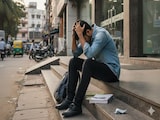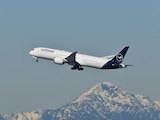A suicide bomb attack on worshippers at a Shiite mosque in the Afghan city of Kunduz killed at least 55 people Friday, in the bloodiest assault since US forces left the country.
Scores more victims from the minority community were wounded in the blast, which was claimed by the Islamic State group and appeared designed to further destabilise Afghanistan in the wake of the Taliban takeover.
The Islamic State group, bitter rivals of the Taliban, has repeatedly targeted Shiites in a bid to stir up sectarian violence in Sunni-majority Afghanistan.
In a statement released on its Telegram channels, the Islamic State said that an IS suicide bomber "detonated an explosive vest amid a crowd" of Shiite worshippers who had gathered inside the mosque.
The statement identified the bomber as "Muhammad al-Uyguri", implying he was a member of China's mainly-Muslim Uyghur minority.
A medical source at the Kunduz Provincial Hospital said that 35 dead and more than 55 wounded had been taken there, while Doctors Without Borders (MSF) said 20 dead and scores more wounded were brought to its hospital.
Matiullah Rohani, director of culture and information in Kunduz for Afghanistan's new Taliban government, confirmed to AFP that the deadly incident was a suicide attack and said that 46 people had died and 143 were wounded.
Mulawi Dost Muhammad, Taliban security chief of Kunduz, accused the attackers of trying to foment trouble between Shiites and Sunnis, and insisted there was no dispute between the movement and the minority.
"We assure our Shiite brothers that in the future, we will provide security for them and that such problems will not happen to them," he said.
Residents of Kunduz, the capital of a province of the same name, told AFP the blast hit the mosque during Friday prayers, the most important of the week for Muslims.
One witness, Rahmatullah, said 300 to 400 worshippers were inside.
Frightened Crowds
Graphic images shared on social media, and which could not immediately be verified, showed several bloodied bodies lying on the floor. Pictures showed plumes of smoke rising into the air over Kunduz.
A female teacher in Kunduz told AFP the blast happened near her house, and several of her neighbours were killed. "It was a very terrifying incident," she said.
"Many of our neighbours have been killed and wounded. A 16-year-old neighbour was killed. They couldn't find half of his body. Another neighbour who was 24 was killed as well."
Aminullah, an eyewitness whose brother was at the mosque, said: "After I heard the explosion, I called my brother but he did not pick up.
"I walked towards the mosque and found my brother wounded and faint. We immediately took him to the MSF hospital."
Kunduz's location makes it a key transit point for economic and trade exchanges with Tajikistan.
It was the scene of fierce battles as the Taliban fought their way back into power this year.
Often targeted by Sunni extremists who view them as heretics, Shiite Muslims have suffered some of Afghanistan's most violent assaults, with rallies bombed, hospitals targeted and commuters ambushed.
Persecuted Community
Shiites make up roughly 20 percent of the Afghan population. Many of them are Hazara, an ethnic group that has been heavily persecuted in Afghanistan for decades.
In October 2017, an ISIS suicide attacker struck a Shiite mosque as worshippers gathered for evening prayers in the west of Kabul, killing 56 people and wounding 55 including women and children.
And last May, a series of bombings outside a school in the capital killed at least 85 people, mostly young girls. More than 300 were wounded in this attack on the Hazara community.
Michael Kugelman, a South Asia expert at the Woodrow Wilson International Center for Scholars, told AFP the Taliban would struggle to consolidate their rule unless they tackle terrorism and economic crisis.
"If the Taliban, as is likely, is unable to address these concerns, it will struggle to gain domestic legitimacy, and we could see the emergence of a new armed resistance," he warned.
The United Nations in Afghanistan said it was "deeply concerned by reports of very high casualties" in Friday's attack, calling it a "part of a disturbing pattern of violence".
UN refugee chief Filippo Grandi told reporters in Geneva the blast was "the symptom that the implosion (of Afghanistan) may also translate into renewed insecurity."
This, he said, means "more people killed, more terrorist attacks, more instability. And that is also something that we should all be worried about".
(Except for the headline, this story has not been edited by NDTV staff and is published from a syndicated feed.)















